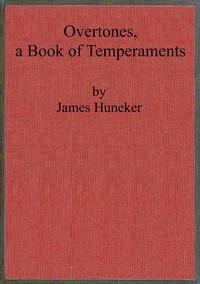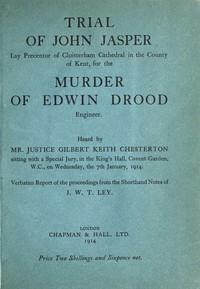|
|
Read this ebook for free! No credit card needed, absolutely nothing to pay.Words: 81468 in 13 pages
This is an ebook sharing website. You can read the uploaded ebooks for free here. No credit cards needed, nothing to pay. If you want to own a digital copy of the ebook, or want to read offline with your favorite ebook-reader, then you can choose to buy and download the ebook. l. Luther Worship 2. Luther Hatred 3. Luther Blemishes 4. Luther's Task 5. The Popes in Luther's Time 6. Luther's Birth and Parentage 7. Luther's Great Mistake 8. Luther's Failure as a Monk 9. Professor Luther, D. D. 10. Luther's "Discovery" of the Bible 11. Rome and the Bible 12. Luther's Visit at Rome 13. Pastor Luther 14. The Case of Luther's Friend Myconius 15. Luther's Faith without Works 16. The Fatalist Luther 17. Luther a Teacher of Lawlessness 18. Luther Repudiates the Ten Commandments 19. Luther's Invisible Church 20. Luther on the God-given Supremacy of the Pope 21. Luther the Translator of the Bible 22. Luther a Preacher of Violence against the Hierarchy 23. Luther, Anarchist and Despot All in One 24. Luther the Destroyer of Liberty of Conscience 25. "The Adam and Eve of the New Gospel of Concubinage" 26. Luther an Advocate of Polygamy 27. Luther Announces His Death 28. Luther's View of His Slanderers Catholic writers profess themselves shocked by the unblushing veneration which Luther receives from Protestants. Such epithets as "hero of the Reformation," "angel with the everlasting Gospel flying through the midst of heaven," "restorer of the Christian faith," grate on Catholic nerves. Luther's sayings are cited with approval by all sorts of men. Men feel that their cause is greatly strengthened by having Luther on their side. Luther's name is a name to conjure with. Hardly a great man has lived in the last four hundred years but has gone on record as an admirer of Luther. Rome, accordingly, cries out that Luther is become the uncanonized saint of Protestantism, yea, the deified expounder of the evangelical faith. The Roman Church is accustomed to speak of her Supreme Pontiff, the Holy Father, the Vicegerent of Christ, His Infallible Holiness, in terms that lift a human being to heights of adoration unknown among Protestants. For centuries the tendency in the Roman Church to make of the Pope "a god on earth" has been felt and expressed in Christendom. This Church wants to preach to Protestants about the sin of man-worship! Verily, here we have the parable of the mote and the beam in a twentieth century edition. Catholic teachers would be the last ones, we imagine, whom scrupulous Christians would choose for instructing them regarding the sin of idolatry and the means to avoid it. No Protestant regards Luther as Catholics regard Mary, not even Patrick. Luther has taught them too well for that. Unwittingly the Catholics themselves have immortalized Luther by naming the Evangelical Church after Luther. Luther declined the honor. "I beg," he said, "not to have my name mentioned, and to call people not Lutheran, but Christian. What is Luther? The doctrine is not mine, nor have I been crucified for any one. . . . The papists deserve to have a party-name, for they are not content with the doctrine and name of Christ; they want to be popish also. Well, let them be called popish, for the Pope is their master. I am not, and I do not want to be, anybody's master." It is likely that the frequent laudatory mention of Luther's name, especially in connection with the present anniversary of the Reformation, is taken as a challenge by Catholics. If it is that, it is so by the choice of Catholics. It is impossible to speak of a great man without referring to the conflicts that made him great. "He makes no friend," says Tennyson, "who never made a foe." "The man who has no enemies," says Donn Piatt, "has no following." Opposition is one of the accepted marks of greatness. The opposition which great men aroused during their lifetime lives after them, and crops out again on a given occasion. This is deplorable, but it is the ordinary course. Moreover, it is possible that in a season of great joy like that which the Quadricentenary of the Reformation has ushered in orators and writers may fail to put a due check on their enthusiasm and may overstate a fact. Such things happen even among Catholics, we believe, But they will be negligible quantities in the present celebration. The proper corrective for them will be provided by Protestants themselves. The vast majority of those who have embraced the spiritual leadership of Luther in matters pertaining to Christian doctrine and morals will prove again that they are in no danger of inaugurating man-worship. The spirit of Luther is too much alive in them for that. They will, with the Marquis of Brandenburg, declare: "If I be asked whether with heart and lip I confess that faith which God has restored to us by Luther as His instrument, I have no scruple, nor have I a disposition to shrink from the name Lutheran. Thus understood, I am, and shall to my dying hour remain, a Lutheran." They will ever be able to distinguish between the man Luther, prone to error and sin like any other mortal, and the Luther who fought the battle of the Lord and had a mission of everlasting import to the Church and the world. They have shown on numerous occasions that they can be friends of Luther, and yet criticize him or dissent from him. If they had not, there would be no Protestants whom Catholics can quote as "opponents" of Luther. On the other hand, if any one undertakes to enlighten the public with a view of Luther, Protestants will insist that his estimate comport with the facts in the case, and that the name of a great man who deserves well of posterity be not traduced. Why, even the Catholic von Schlegel thinks Luther has not been half esteemed as he ought to be. Catholic writers have found so much to censure in the character and writings of Luther that one is amazed, after reading them, how Luther ever could become regarded as a great and good man. Criminal blindness must have held the eyes, not only of Luther's associates, but of his entire age, yea, of men for centuries after, if they failed to see Luther's constitutional baseness. Quite recently a Catholic writer has told the world in one chapter of his book that "the apostate monk of Wittenberg" was possessed of "a violent, despotic, and uncontrolled nature," that he was "depraved in manners and in speech." He speaks of Luther's "ungovernable transports, riotous proceedings, angry conflicts, and intemperate controversies," of Luther's "contempt of all the accepted forms of human right and all authority, human and divine," of "his unscrupulous mendacity," "his perverse principles," "his wild pronouncements." He calls Luther "a lawless one," "one of the most intolerant of men," "a revolutionist, not a reformer." He says that Luther "attempted reformation and ended in deformation." He charges Luther with having written and preached "not for, but against good works," with having assumed rights to himself in the matter of liberty of conscience which "he unhesitatingly and imperiously denied to all who differed from him," with having "rent asunder the unity of the Church," with having "disgraced the Church by a notoriously wicked and scandalous life," with having "declared it to be the right of every man to interpret the Bible to his own individual conception," with "one day proclaiming the binding force of the Ten Commandments and the next declaring they were not obligatory on Christian observance," with having "reviled and hated and cursed the Church of his fathers." These opprobrious remarks are only a part of the vileness of which the writer has delivered himself in his first chapter. His whole book bristles with assertions of Luther's inveterate badness. This coarse and crooked Luther, we are told, is the real Luther, the genuine article. The Luther of history is only a Protestant fiction. Protestants like Prof. Seeberg of Berlin, and others, who have criticized Luther, are introduced as witnesses for the Catholic allegation that Luther was a thoroughly bad man. We should like to ascertain the feelings of these Protestants when they are informed what use has been made of their remarks about Luther. Some of them may yet let the world know what they think of the attempt to make them the squires of such knights errant as Denifle and Grisar. Luther has done one thing which Rome will never pardon: he dared to attack the supreme authority of the Pope. He made men see the ignominious bondage in which cunning priests had ensnared them, and by restoring them to the liberty with which Christ had made them free Luther caused the papacy an irreparable loss. The papal system of teaching and government was so thoroughly exposed by Luther, and has since been so completely disavowed by a great part of professing Christians that Rome cannot practise its old frauds any longer. Men have become extremely wary of Rome. That is what hurts. The Catholic writer to whom we referred sums up the situation thus: Since Luther "all Protestant mankind descending by ordinary generation have come into the world with a mentality biased, perverted, and prejudiced." That is Rome's way of looking at the matter. The truth is: the world is forewarned, hence forearmed against the pleas of Rome. It pays only an indifferent attention to vilifications of Luther that come from that quarter, because it expects no encomiums and only scant justice for Luther from Rome. But it is the business of the teachers of Protestant principles in religion, particularly of the church historians of Protestantism, to take notice of the campaign of slander that is launched against Luther by Catholic writers at convenient intervals. It is not a task to delight the soul, rather to try the patience, of Christians. For in the study of the causes for these calumnies against a great man of history, and of the possible means for their removal, one is forced invariably to the conclusion that there is but one cause, and that is hatred. What can poor mortal man do to break down such a cause? It does not yield to logic and historical facts, because it is in its very nature unreasoning and unreasonable. Still, for the hour that God sends to all the Sauls that roam the earth breathing threatening and slaughter, the counter arguments should be ready. No slander against Luther has ever gone unanswered. As the charges against Luther have become stereotyped, so the rejoinder cannot hope to bring forward any new facts. But it seems necessary that each generation in the Church Militant be put through the old drills, and learn its fruitful lessons of spiritual adversity. Thus even these polemical exchanges between Catholics and Protestants become blessings in disguise. But they do not affect Luther. The sublime figure of the courageous confessor of Christ that has stood towering in the annals of the Christian Church for four hundred years stands unshaken, silent, and grand, despite the froth that is dashed against its base and the lightning from angry clouds that strikes its top. "Surely, the wrath of man shall praise thee." When Luther is charged with immoral conduct, and the specific facts together with the documentary evidence are not submitted along with the charge, little can be done in the way of rebuttal. One can only guess at the grounds on which the charge is based. For instance, when Luther is said to have disgraced the Church by a notoriously wicked and scandalous life, the reason is most likely because he married although he was a monk sworn to remain single. Moreover, he married a noble lady who was a nun, also sworn to celibacy. According to the inscrutable ethics of Rome this is concubinage, although the Scripture plainly declares that a minister of the Church should be the husband of one wife, 1 Tim. 3, 2, and no vows can annul the ordinance and commandment of God: "It is not good that man should be alone." Gen. 2, 18. Comp. 1 Cor. 7, 2, and Augsburg Confession, Art. 27. When Luther is said to have taught Nietzsche's insanity about the "Superhuman" before Nietzsche, to have put the Ten Commandments out of commission for Christians, and to have preached against good works, the reasons most likely are these: Luther taught salvation in accordance with Rom. 3, 25: "We conclude that a man is justified by faith, without the deeds of the Law." Luther taught that a person is not saved by his own works, and if he performs good works with that end in view, he shames his Lord and Savior Jesus Christ, who is the end of the Law for righteousness to every one that believeth , and he falls under the curse of God for placing his own merits alongside of the merit of the Redeemer's sacrifice. In no other connection has Luther spoken against good works. He has rather taught men how to become fruitful in well-doing by the sanctifying grace of God and according to the inspiring example of the matchless Jesus. Concerning the Law, Luther preached 1 Tim. 1, 9: "The Law is not made for a righteous man," that is, Christians do the works of the Law, not for the Law's sake, but for the sake of Christ, whom they love and whose mind is in them. They must not be driven like slaves to obey God, but their very faith prompts them to live soberly, righteously, and godly in this present world . But Luther always held that the rule for good works is laid down in the holy Law of God, and only in that; also that the Law must be applied to Christians, in as far as they still live in, the flesh, and are not become altogether spiritual. Luther's public activity as a preacher began with a series of sermons on the Ten Commandments, and this effort to expound the divine norm of righteousness was repeated several times during Luther's life. Luther's expositions of the Decalog are among the finest that the world possesses. Moreover, Luther wrote the Small Catechism. Hand any Catholic who talks about Luther having abolished the Ten Commandments this little book. That is a sufficient refutation. What Luther teaches in this book he has given his life to reduce to practise in himself and others. He says in a sermon on Easter Monday, 1530: "When rising in the morning, I pray with my children the Ten Commandments, the Creed, the Lord's Prayer, and some Psalm. I do this because I want to make myself cling to these truths. I shall not suffer my faith to become mildewed with the imagination that I am above these things ." His sermon on the First Sunday in Advent in the same year he begins thus: "Dear friends, I am now an old Doctor, still I find every day that I must recite with the children the Ten Commandments, the Creed, and the Lord's Prayer, and I have always derived a great benefit and blessing from this practise." Free books android app tbrJar TBR JAR Read Free books online gutenberg More posts by @FreeBooks
: Needler by Garrett Randall Emshwiller Ed Illustrator - Science fiction; War stories; Human-alien encounters Fiction; Weapons Fiction@FreeBooksThu 08 Jun, 2023

: The diagnostics and treatment of tropical diseases by Stitt E R Edward Rhodes - Tropical medicine@FreeBooksThu 08 Jun, 2023

: Slipstream: the autobiography of an air craftsman by Wilson Eugene E - Wilson Eugene E. 1887-1974; United States. Navy Aviation; Aircraft industry United States Biography@FreeBooksThu 08 Jun, 2023
|
Terms of Use Stock Market News! © gutenberg.org.in2025 All Rights reserved.






